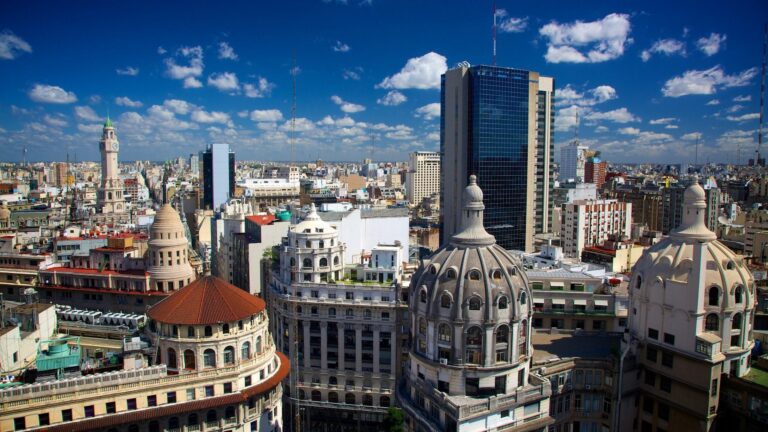Argentina’s President Javier Milei has come under scrutiny for a series of online attacks targeting journalists and media outlets, raising concerns about press freedom in the South American nation. As the administration faces growing criticism, these aggressive tactics have sparked alarm among domestic and international observers who warn that such actions threaten the independence of the free press. This report examines how Milei’s confrontational approach to the media is shaping the country’s democratic landscape.
Argentina’s President Javier Milei Targets Independent Media with Coordinated Online Campaigns
President Javier Milei’s administration has escalated its efforts to discredit independent journalism by orchestrating systematic online campaigns targeting critical media outlets. These digital offensives frequently involve coordinated attacks via social media platforms, aiming to erode public trust in news organizations that challenge the government’s narrative. Media watchdogs report a sharp rise in misinformation and trolling activities directly linked to supporters of Milei, creating an environment hostile to press freedom and factual reporting.
Such campaigns have not only undermined journalistic integrity but have also raised serious concerns about the future of democratic discourse in Argentina. Below is a summary of the key tactics observed in these online operations:
- Massive bot accounts amplifying propaganda
- Targeted harassment of journalists and editors
- Spreading false narratives to discredit investigations
| Campaign Aspect | Observed Effect | Source |
|---|---|---|
| Social Media Bots | Increased misinformation spread by 70% | Independent Monitoring Group |
| Harassment Cases | Journalist complaints doubled in 6 months | Argentine Journalist Union |
| Media Credibility | Public trust down by 25% | National Survey 2024 |
Impact of Milei’s Rhetoric on Press Freedom and Democratic Institutions in Argentina
Since taking office, President Javier Milei has consistently employed incendiary language targeting the Argentine media, fostering a climate of hostility that poses significant risks to press freedom. His public denunciations of journalists and news outlets as “enemies of the people” have sown distrust among the public, undermining the essential watchdog role that a free press plays in a healthy democracy. These personal attacks not only intimidate reporters but also embolden political allies to suppress dissenting voices through intimidation or legislative maneuvers. Experts warn that such rhetoric erodes the transparency and accountability mechanisms vital for Argentine democratic institutions to function effectively.
The consequences of this antagonistic stance manifest in measurable declines across key democratic indicators, including reduced media pluralism and heightened censorship pressures. Consider the following implications observed since Milei’s presidency:
- Increased threats against journalists: Reports of harassment and online abuse have surged by over 40% in the past year.
- Legislative proposals limiting media operations: Several bills aimed at curtailing journalistic independence are underway.
- Deterioration of institutional trust: Public confidence in government transparency has dropped sharply, contributing to political polarization.
| Year | Harassment Cases | Media Censorship Incidents | Transparency Index Score |
|---|---|---|---|
| 2022 | 120 | 15 | 65 |
| 2023 | 170 | 28 | 52 |
| 2024 (Q1) | 55 | 12 | 48 |
Strengthening Journalistic Integrity and Protecting Media Workers Amid Rising Political Hostility
In recent months, Argentina has witnessed an alarming surge in political hostility directed at the media, primarily fueled by President Javier Milei’s relentless online attacks. These aggressive tactics pose a direct threat to *press freedom* and the safety of journalists, who are increasingly targeted for exposing uncomfortable truths. Milei’s rhetoric not only undermines public trust in independent reporting but also creates a hostile environment that discourages critical journalism, essential for a healthy democracy.
Media workers face multiple challenges in this climate, including:
- Verbal harassment and intimidation via social media platforms
- Physical threats against reporters covering sensitive political issues
- Disinformation campaigns designed to discredit credible news sources
| Threat Type | Examples | Impact |
|---|---|---|
| Online Harassment | Targeted tweets, coordinated discredit campaigns | Reduced journalist morale, self-censorship |
| Physical Intimidation | Harassment at public events, threats during coverage | Increased safety risks, potential injury |
| Legal Pressure | Strategic lawsuits, biased investigations | Financial drain, stifled investigative reporting |
To preserve the integrity of the press, there is an urgent need for robust legal protections, effective monitoring of online platforms, and solidarity among media professionals. International organizations and civil society groups must amplify their support, ensuring that journalists can operate without fear of retribution in Argentina’s increasingly volatile political landscape.
To Wrap It Up
As Argentina navigates a turbulent political landscape, President Javier Milei’s escalating online attacks against the press raise serious concerns about the future of press freedom in the country. Media watchdogs and international observers warn that such rhetoric not only undermines journalists’ ability to report independently but also threatens the democratic principles Argentina has long upheld. How the administration responds to these criticisms will be closely watched both at home and abroad, as the nation grapples with balancing robust political discourse and the protection of a free and independent press.




